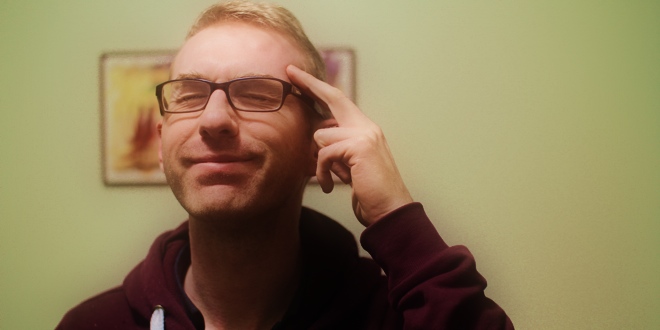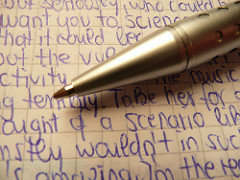In very simple terms, language learning is a memory game. The more you can remember, the better your language skills will be. It is logical to say—if you can improve your memory you will increase your capacity to learn a language.
So how then can you improve your memory?
Like much advice that focuses on improving the human body, you need to start with a rock-solid foundation:
- Good sleep and a good diet.
Any other attempts to ‘optimize’ performance are a waste of time without these two fundamentals.
Note this post isn’t about sleep and diet, but I have to mention them because they are the crucial starting point. In other words, any tips that I’m about to talk about aren’t going to give you an edge if you running on less than 5 hours of sleep each night.
So assuming that you are getting good amounts of sleep and finding room on your plate for some quality greens and other essentials, let’s move on.
I often get asked about memory. Or more specifically, the students at Real Fast Spanish tell me that one of their biggest challenges is being able to remember new vocabulary.
Up until this point, to help with this challenge, I have researched and talked about memory strategies such as mnemonics, using emotion and spaced repetition.
For this post, I’m going to explore the topic of memory further. And, I wanted to see what else is out there in terms of tips and tactics that help with memory recall.
What I found were 6 unusual tactics that seem so simple that they are counterintuitive.
These tactics are backed by research. But despite the research, and like any tactic that you find on Real Fast Spanish, you should try it for yourself.
So let’s look at a few unusual tactics that have been demonstrated to enhance memory.
1. Close your eyes
 If you are struggling to remember something, simply close your eyes.
If you are struggling to remember something, simply close your eyes.
This may seem strange at first but if you think about it and pay attention, you may notice that people sometimes do this subconsciously.
This effect has been investigated in several studies.
In one research paper published in the Journal of Law and Human Behavior, researchers investigated the effect of eye closure on recall with several experiments.
They had the research participants watch a video or a live interaction. Afterwards, they tested the participants for their recall of the events with eyes open and closed.
What they found was that eye closure increased recall of both visual and auditory details, with no accompanying increase in recall of false details.
Although the research was focused around eyewitness recall, it is worth experimenting yourself with Spanish vocabulary.
Next time you find yourself blanking on a Spanish word, try closing your eyes.
If you are speaking to someone face to face, you may have to carefully navigate the social awkwardness that comes with closing your eyes every few minutes.
But, when you are first trying to speak a foreign language it is socially awkward anyway. So if it helps your Spanish, why not give it go?
Something else worth trying is closing your eyes at the point when you are learning new vocabulary.
As you discover new words and determine their meaning, try closing your eyes as you are committing them to memory. Although I couldn’t find any research specifically investigating eye closure at the point of memory input if it works to enhance your brain at the point of recall, it could work at the point of storage as well.
2. Listen to Mozart
This next tactic is also quite simple—listen to Mozart.
Commonly known as the “Mozart Effect”, this tactic fascinates me.
One the one hand, it is possible to believe that music can improve your brain. But on the other, it is mind-blowing that the music of one specific composer, Wolfgang Amadeus Mozart, outperforms not only other genres of music but other composers of the same classical era.
How can the music of one specific composer outperform all others?
I have no idea—but I would love to know. If you have any ideas please leave a comment below and put me out of my misery.
Although the answer to why his music affects us the way it does is unknown, research has demonstrated its efficacy time and again.
In a research paper published in the Journal of Consciousness and Cognition, researchers pitted Mozart’s “K448” against Beethoven’s “Fur Elise”. You can listen to these two pieces of music here:
Mozart – K. 448 Sonata for Two Pianos in D major, ‘L’Allegro con spirito’:
Beethoven – Für Elise:
The researchers found that the participant’s brain waves associated with memory, cognition and problem solving increased after listening to Mozart’s music. In contrast, this same effect could not be seen with Beethoven’s music.
I have to be honest and say that I have tried this tactic and I’m unsure of the results. It’s difficult to quantify my performance in isolated study sessions.
I have tried doing 30 minutes of Spanish study with Mozart going in the background on one day and then repeated another 30 minutes of study on another day without music. But, I couldn’t say for sure whether it had a huge effect.
What I can say is that the research is clear and if you aren’t adverse to the music of Mozart then why not put it on the background for your next study session?
I recently dedicated a podcast episode to the Mozart effect. In that episode, I give a quick introduction to the topic and then follow with 30 minutes of Mozart’s music. You can use the episode as a resource for Mozart’s music and see if the effect works for you.
3. Laugh more often

If you are adverse to the music of Mozart, this tactic might be more up your alley.
You have probably heard the adage that laughter is the best medicine. But you may not have heard that research has demonstrated that laughter can improve brain function.
Researchers at Loma University conducted a study to see the effects of laughter on memory.
In the experiment, one group was put in front of a Red Skelton comedy or a montage of America’s funniest home videos while a control group was told to sit calmly for 20 minutes without reading, sleeping or using their phones.
The results of the study showed a significant increase in recall for the group that watched the funny videos.
In addition to the tests on memory recall, researchers also found that cortisol levels (the hormone associated with stress) were reduced in the group that watched the funny videos.
Increased cortisol is associated with decreased higher-order brain function. This could explain why memory function is improved as a result of laughter.
So why not try putting on a funny movie before your next Spanish study session? (Or, even watching a Spanish comedy!)
4. Drink green tea

Green tea seems to be in a league of its own when it comes to positive effects on the human body.
When I was in my early 20’s I had a chronic hamstring injury that ailed me for months. My physiotherapist recommended 5 cups of green tea a day. When I questioned the treatment regime, he pointed me to studies that demonstrate green tea’s effects on reducing inflammation. He also said that nowadays professional athletes commonly use green tea for overcoming injuries. So I followed the doctor’s orders. To my surprise, I also saw positive results for myself—I was back running again only a few weeks later.
On top of green tea’s effects on inflammation, there is now research demonstrating it’s positive effects on short-term memory.
In a study published in the Journal of Psychopharmacology, researchers investigated green tea’s effects on working memory.
They gave two drinks to 12 volunteers, one with green tea extract and the other without. The results of the study demonstrated increased performance for working memory with the volunteers that drank the green tea extract.
So can you swap out your daily cup of coffee for a cup of green tea instead?
I know for many reading this article that last suggestion is tantamount to blasphemy. So then maybe instead of swapping out a cup of coffee, you could simply add a cup of green tea on top of your daily coffee routine.
5. Be like a cat
 You may have heard that “curiosity killed the cat” but you may not have heard that being in a state of “curiosity” enhances learning and memory.
You may have heard that “curiosity killed the cat” but you may not have heard that being in a state of “curiosity” enhances learning and memory.
Researchers at the University of California conducted a study that investigated how “being curious” affects learning and memory retention.
In the experiment, participants were asked a series of trivia questions. After each question, the participants were asked to rate how curious they were about the answers. Later, the participants were re-tested to see how much they retained from the trivia tests.
It is probably unsurprising that the results of the experiment demonstrated a significant increase in memory recall for the questions that the participants had said they were curious about.
This probably makes sense—if you are curious about something, you are more likely to remember it.
But in contrast, a surprising result of the experiment was that memory recall for other information unrelated to the question was also enhanced. In other words, just being in a state of curiosity improved learning and recall even for information that the participants weren’t specifically curious about.
So the big take away—how can you be more curious when practising your Spanish?
One option, you could choose topics that fascinate you and look for materials in Spanish on that topic.
Alternatively, as the research suggested, you could simply review any topic that fascinates you before a Spanish study session.
For example, you could watch an interesting documentary on the discovery channel, then when you are done, you could sit down and do half an hour of Spanish study.
6. Write it down
 One of the simplest and most powerful language learning strategies I have ever heard (and regularly use) is this one:
One of the simplest and most powerful language learning strategies I have ever heard (and regularly use) is this one:
When you learn a new word, write it down!
This doesn’t mean “write it down” as in the new school, open a google doc or Evernote file and then label it, bookmark it and make sure it is searchable by category tags.
When I say write it down, I mean old school—pen and paper.
Of course, like the other techniques in this post, there is research to back this up.
In a study conducted at the University of Princeton and the University of California, researchers set up an experiment to test the effectiveness of note-taking by hand in comparison to note-taking with a laptop.
The experiment demonstrated that participants who took notes by hand not only remembered the material better but had a better conceptual understanding of the material as well.
One of my best friends (and mentor in language learning) speaks 7 languages. You can listen to my podcast interview with him here. He often attributes his success with language learning to carrying around a small notepad in his pocket. Every time he heard a new word, he would write it down. Later he would look for opportunities to use that word in a conversation.
So can you make a habit of physically writing down new words as you discover them?
Try carrying around a small notepad for occasions when you may stumble across new Spanish vocabulary. Or try replacing note-taking with your smartphone or laptop with a pad and pen and see if you notice a difference with your memory recall.
Summary
As I mentioned at the start of the article, if you want to boost your memory and improve your brain, sleep and nutrition are key.
But, once you have these two fundamentals for brain health covered, there are some fascinating research-based tactics you can use to enhance your memory.
Next time you have an opportunity, see if you can put a few of the tactics in this article into practice.
Treat them like an experiment and see if they work for you.
What other memory strategies have worked for you?




I’m not sure if this will help everyone, but I’m fascinated with how words translate literally as well as figuratively. This opens new avenues for exploration, often just from one word. For example, I recently looked up the Spanish word for ‘shadow’, which is ‘sombra’. Curious, I thought, it’s similar to the word for ‘hat’ – ‘sombrero’. Everybody knows that one. Of course! In sunny Spain and Mexico, a hat is literally a ‘shadower’. This led me on a journey to investigate the ‘-ero’ suffix, which has opened up a whole heap of vocabulary! All because ‘hat’ isn’t an accurate translation of ‘sombrero’.
Hey Alan, getting familiar with prefixes (prefijos) and suffixes (sufijos) is a great memory hack. A few other words that come to mind are ‘paraguas’ – ‘umbrella’ (‘parar’ – ‘stop’ and ‘agua’ – ‘water’) and ‘parabrisas’ – ‘windshield’ (‘parar’ – ‘stop’ and ‘brisa’ – ‘breeze’).
Thanks for sharing!!
Interestingly, para is also “for”, paraglider, parasail, parasol….my curiosity about the connections between the two languages enhances my memory.
Yes, you’re right, making connections between the two languages is a brilliant way to improve your memory. Thanks for sharing Ron!
And parapluie..rain stopper!
There are a whole host of “memory enhancing” tips. Such as:
1. After exercise, because of the increase in blood flow to the brain.
2. Before going to sleep, some brain scientists believe it increases recall.
3. Association: pair the “thing to be remembered” with some other fact, idea, name etc..
4. Make a story about the fact you want to remember, pulls in the creative side of the brain.
And the list goes on. . .
The more the better, thanks for sharing Miguelito! 🙂
While Beethoven’s music is “pretty”, Mozart’s is always “going somewhere”. His musical progression is something that other composers of the time hadn’t quit gotten onto. His strong progression-style opens receptors in the brain.
Of course, the best memory-tip is to use the new word/s immediately and often. Throw the word/s into context and construct phrases and sentences that are immediately usable. Otherwise, why learn the word at all? To wait until it’s needed and then close your eyes and scratch your head?
Thanks for sharing Garry!
I use music to increase my vocabulary. For instance, most lyrics repeat certain words and phrases. Can easily google the translation to learn them. Also, Spanish covers of English songs helps in learning new vocabulary. Examples are Juanes singing, Dancing in the Dark, Hero by Enrique Iglesias, etc.
Great suggestion, thanks for sharing Barb! 🙂
Really fascinating topic, and I think it’s appropriate to recommend a recent (easy to read) book that summarizes much of the latest research into memory. “Remember: the science of memory and the art of forgetting” by neuroscientist Lisa Genova, has many worthwhile insights, especially her definitive assertion that without attention, there is no long term memory formation. Period. Worth knowing!
Awesome James! Thanks for sharing! I haven’t read that book but it is now officially on my ‘to-read’ list!!! 🙂